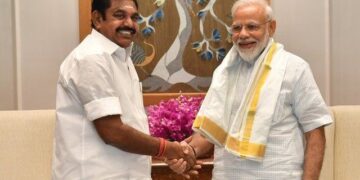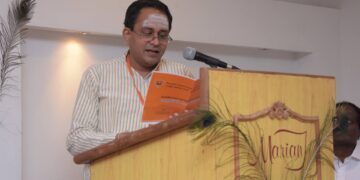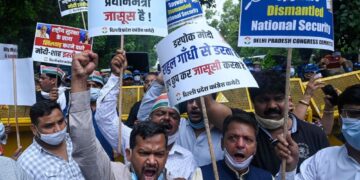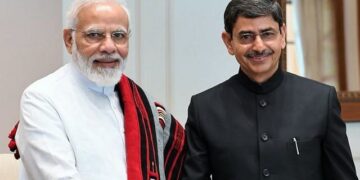
ஐரோப்பாவிலும் அமரிக்காவிலும் அகதி விண்ணப்பம் நிராகரிக்கப்பட்டவர்களும் வேலை விண்ணப்பம் நிராகரிக்கப்பட்டவர்களும் குற்றவாளிகள் போன்று நடத்தப்படுகின்றனர். இனவழிப்பின் பின்னதாக இலங்கையிலிருந்து துரத்தப்பட்ட ஆயிரக்கணக்கான தமிழர்கள் ஐரோப்பிய நாடுகளில் தஞ்சம் நிராகரிக்கப்பட்டு அனாதரவாக்கப்பட்டுள்ளனர். இலங்கையில் மனித உரிமைகள் மீறப்படுகின்றது தமது வசதிக்காகக் கூறும் ஐரோப்பிய அரசுகள் அங்கு ஜனநாயகம் நிலவுகின்றது என்று அகதிக் கோரிக்கை முன்வைத்தவர்களைத் திருப்பியனுப்புகின்றது.
அகதிகளையும் ஏனைய நாடுகளிலிருந்து பல்வேறு நிர்ப்பந்தங்கள் காரணமாக ஐரோப்பாவை நோக்கிக் குடியேறுபவர்களையும் கிரிமினல்கள் போன்று நடத்தும் ஐரோப்பிய அரசுகளின் நடவடிக்கைகளைக் கண்டித்து AHRU என்ற அமைப்பு நெதர்லாந்தில் ஒன்றுகூடல் ஒன்றை நடத்தியது. பல்வேறு நாடுகளைச் சார்ந்தவர்கள் கலந்துகொண்ட அந்த அந்த ஒன்று கூடலில் இந்திரன் சின்னையா ஈழத் தமிழர்கள் தரப்பிலிருந்து கலந்துகொண்டார்.
அமைப்பின் தீர்மானங்கள்:
AHRU’s position for the legalization of irregular migrants
A. From the viewpoint of human rights:
The United Nations states the following principles in the International Covenant on Economic, Social and Cultural Rights: (i) recognition of the inherent dignity and of the equal and inalienable rights of all members of the human family is the foundation of freedom, justice and peace in the world, and (ii) the ideal of free human beings enjoying freedom from fear and want can only be achieved if conditions are created whereby everyone may enjoy his economic, social and cultural rights, as well as his civil and political rights.
With regard to migrants in particular, the United Nations General Assembly adopted on December 18, 1990 the International Convention on the Protection of the Rights of all Migrant Workers and Members of their Families which requires states to adhere to basic human rights standards in their dealings with authorized and unauthorized migrants, including freedom of religion and freedom from arbitrary arrest or imprisonment.
Respect and observance of human rights and the basic tenet of equality among all members of the human family are upheld in the Dutch constitution and in King Willem-Alexander’s speech upon his coronation.
According to the Dutch constitution in Chapter 1, Article 1:
“All persons in the Netherlands shall be treated equally in equal circumstances. Discrimination on the grounds of religion, belief, political opinion, race, or sex or on any other grounds whatsoever shall not be permitted.”
In the speech of King Willem-Alexander at his coronation, he states:
“I swear that I shall defend and preserve the independence and the territory of the Kingdom to the best of My ability; that I shall protect the freedoms and rights of all its citizens and residents, and shall employ all means placed at My disposal by the law to support and promote the Kingdom’s welfare, as is incumbent upon a good and faithful King.”
B. From the viewpoint of economics:
Migration or the movement of people across frontiers and borders is as old as Adam and Eve. In today’s world, there are 2 main forces that drive migration: poverty and persecution/wars.
It is natural for people to move from economically depressed areas to economically dynamic ones. This is true for people who move across international borders as well as within countries from the poor areas to the rich areas.
In our present world where a handful of countries hold a disproportionate share of the world’s wealth while the vast majority are poor, this grossly uneven distribution of wealth drives people from the poor countries to seek greener pastures in the rich countries. It must be noted that this handful of wealthy countries became rich from colonizing the countries now collectively known as the Third World.
Pointing to the futility of attempts to keep out the poor and persecuted, Philip Stephens of the Financial Times says:
“None of this will work. Prohibition has already put migration into the hands of criminal gangs. The traffic in human misery now vies with the drugs trade as a source of billions for those who make their fortunes from the dark side of globalization. Europe’s borders will always be porous. Knowledge of the drugs networks should have taught governments long ago that as long as there is demand there will be supply.”
At a meeting of the interior ministers of the EU in July 2000, it was pointed out that the EU would need to admit 50-70 million immigrants by 2050 to take up vacant jobs. It was further said that the time had come to recognize that the zero immigration policies of the previous 25 years were not working and irrelevant to the EU’s economic and demographic conditions. The 25 years of zero immigration policy had harmed the European economy and had led to a rise in the number of asylum seekers and illegal immigrants, accompanied by smuggling and trafficking in human beings. In 2003, a report of a European commission estimated that the number of people of working age would decline by 40 million from 243 to 203 million, while the number of people aged over 65 was set to rise by 60 percent to 103 million. It would put existing pension schemes under severe strain. The report also pointed to the low birth rates in many European countries resulting in population declines. Without immigration, the population in the EU would drop from 450 million in 2004 to 400 million in 2050.
The report therefore argued that the EU needed net migration of 13.5 million people a year to stop the proportion of working-age people to pensioners from falling and to fill in vacant jobs.
Reacting to the enactment of the EU Return Directive, Sverker Rudeberg, the chairman of the immigration working group at European employers’ organization BusinessEurope said that the EU should send a clear signal to third countries that it is not xenophobic. He called for the formulation of a clear EU policy on legal immigration to fight illegal immigration that follows when the demands of the local labor market cannot be met legally.
Prof. Ewald Engelen of UVA asserts that the EU and the Netherlands cannot afford to close their doors to immigrants:
“The European Union will not be able to provide for its future labor demands endogenously. One look at UN demographic projections suffices to show that within 15 years a scramble for African, Indonesian and Middle Eastern population surpluses will kick off. If the Dutch want to maintain their current level of wellbeing they will have to think of how to become attractive to immigrants.
“This requires above all a different appreciation of migrants. Instead of perceiving them as parasites of the welfare state, the Dutch have to learn to see them as global citizens who vote with their feet, deciding to migrate to one country and not to another is an extraordinary compliment. We must do this not because we are morally obliged to do so (although we are), but because it simply makes economic sense.”
THE POSITION OF AHRU
1. WE ARE AGAINST THE CRIMINALIZATION OF IRREGULAR MIGRATION
a. Criminalizing irregular migration is essentially what the Terugkeer beleid amounts to with its disproportionate punishments such as the high fine and long period of detention in violation of the principle of proportionality that the EU Return Directive ostensibly upholds.
b. There is also the undue stress on police methods and a negative approach as opposed to leaning on the side of humanitarian considerations that pervade many UN conventions that put a stress on human rights.
2. WE URGE THE POLICY MAKERS TO GIVE PREFERRENCE TO THE OPTION OF LEGALIZATION ON MORAL AND ECONOMIC GROUNDS
a. Legalization is one way of rectifying the historical injustices of colonization and addressing the gross inequality that presently exists between countries across the globe. Legalization creates better conditions for the observance of human rights.
b. It makes more economic sense. It is a win-win situation for both migrants and host people.
OUR CONCRETE PROPOSALS
1. Grant amnesty to irregular migrants (both undocumented economic migrants and out of procedure asylum seekers) who have been in the country for a minimum of ten years and have no criminal record.
2. Grant irregular migrants who have been in the Netherlands for at least 5 years the right to have work permits.
3. Recognize domestic work as work in accordance with the ILO convention 189 and legalize the irregular migrants currently doing domestic work in the Netherlands.












All those are developed Western Countries. The Laws are not draconian. There is always relief some where for some body. So Refugee things is also like that. Their standard of living is higher. Their currency is very valuable. So most are economic refugees. Their population has also have started to dwindle. They need some young fresh blood. It is a balance of many factors, facts and figures.